What tea drink to relieve menstrual cramps?
Menstrual discomfort, clinically known as dysmenorrhea, is a common experience, but it's not a one-size-fits-all problem. For many, symptoms extend beyond simple cramps to include bloating, mood swings, and general malaise. While over-the-counter pain relievers are a go-to, many are turning to natural alternatives like tea for a gentler, more holistic approach.
The warmth of a mug alone can be soothing, but the right herbs can offer targeted relief for your specific symptoms. Let's explore which teas might be best for you, based on what you're feeling.
Table of Contents
- →If You're Experiencing Intense Pain and Inflammation
- →If Your Main Symptoms are Bloating and Muscle Spasms
- →If You Need to Reduce Stress and Promote Relaxation
- →If You're Looking for Uterine Support
- →For a Comprehensive, All-in-One Solution
- →Important Precautions
- →A Final Word
If You're Experiencing Intense Pain and Inflammation
For the classic, sharp pain of cramps, you'll want a tea with strong anti-inflammatory properties. This is where herbs that target pain pathways shine.
- Ginger Tea: Does ginger tea help with cramps? The spicy ginger root is a powerful anti-inflammatory agent, and studies have shown that consuming ginger powder can significantly reduce the intensity of period pain. While most studies have used concentrated ginger powder, the active compounds in ginger tea may offer a similar benefit, helping to alleviate both cramping and bloating. It's a key natural remedy for those seeking help with their period.
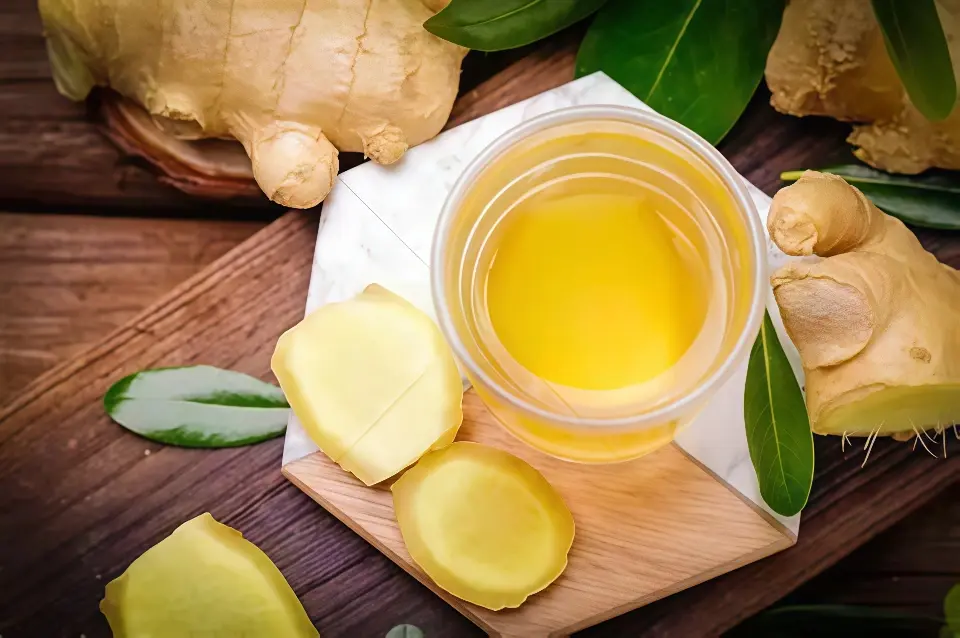
- Green Tea: Does green tea help menstrual cramps? Packed with antioxidants and anti-inflammatory compounds, green tea for period cramps is another excellent choice. Some research suggests that these compounds, such as EGCG, can help reduce the severity of pain by inhibiting inflammation. Additionally, green tea contains L-theanine, an amino acid known for promoting a sense of calm and relaxation, which can be a welcome side effect when dealing with discomfort.
If Your Main Symptoms are Bloating and Spasms
Sometimes, the discomfort is less about a sharp ache and more about a feeling of tightness, gas, and bloating. For these symptoms, an anti-spasmodic tea is what you need.
- Peppermint Tea: Does peppermint tea help cramps? Known for its refreshing taste, peppermint is also an excellent option. Menthol, its main active compound, has been shown to relax smooth muscles, a property that may extend to the uterine muscles. This can potentially ease muscle spasms and discomfort. Anecdotal reports and some studies suggest that peppermint tea for period pain or digestive relief can be very effective, helping with both stomach cramps and gas.
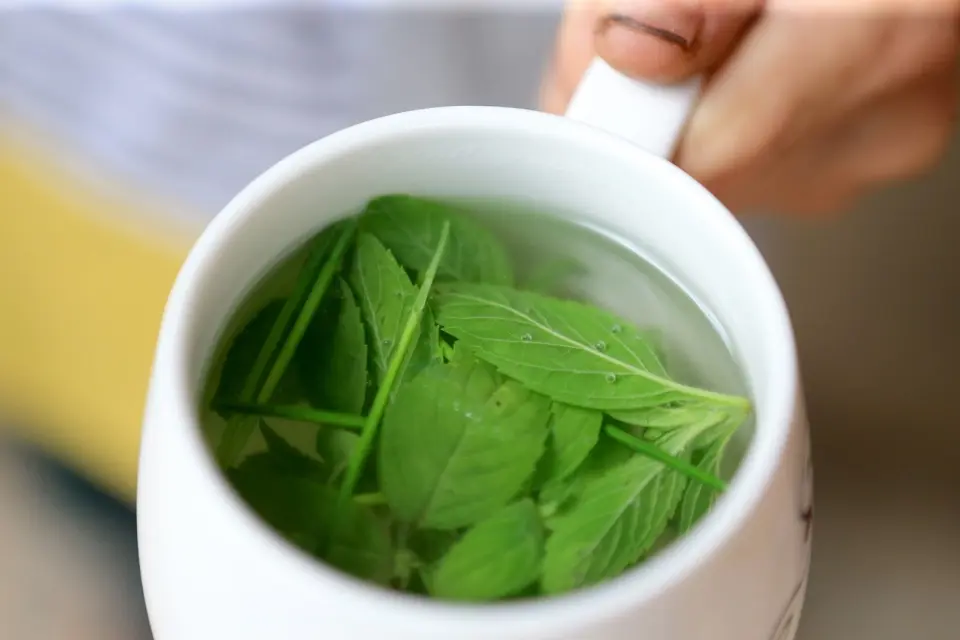
If You Need to Reduce Stress and Promote Relaxation
The physical symptoms of a period are often compounded by stress, fatigue, and irritability. Sipping on a calming tea can provide indirect relief by easing your mind and helping you get better rest.
- Chamomile Tea: Is chamomile tea good for period cramps? A classic choice for relaxation, chamomile tea is renowned for its mild, floral taste and calming effects. While it may not directly act on cramps, it can help reduce overall stress and improve sleep quality. For many, this makes a significant difference in how they manage their cycle.
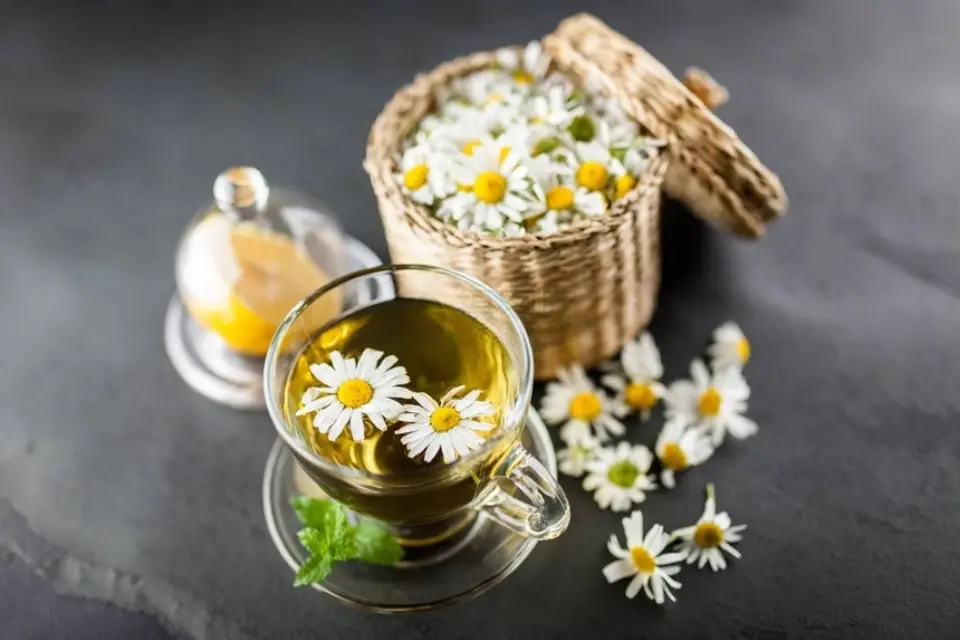
If You're Looking for Uterine Support
Red raspberry leaf tea is a well-known folk remedy for women's health. Preclinical studies report stimulant and relaxant effects of raspberry leaf on uterine smooth muscle, depending on timing and context. Anecdotally, people believe this could lead to more efficient and less painful contractions. However, it's important to note that scientific evidence to support this effect is currently limited, and some studies have shown no impact on uterine contractions. It's a traditional remedy with a long history, but not a medically proven one for menstrual cramps.
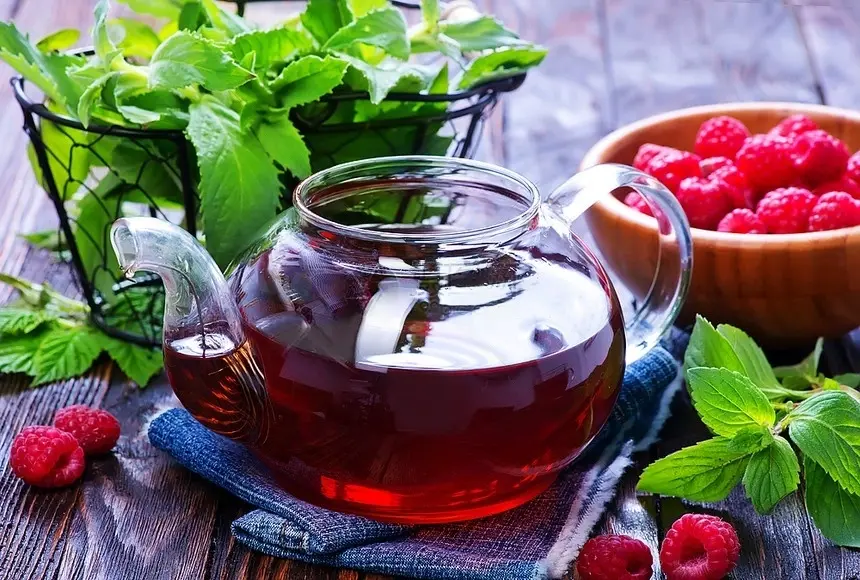
For a Comprehensive, All-in-One Solution
Sometimes a single tea isn't enough. A more complete approach, a carefully crafted blend can combine the benefits of multiple herbs.
- Laicuherb PMS Tea: Generally seen as a health supplement rather than a medical treatment. Their goal is to gently soothe premenstrual symptoms like mood swings, headaches, and bloating, which can contribute to cramps. Unlike quick-acting medications, these herbal tea for menstrual cramps blends are intended to be consumed regularly over time to help regulate the body, gradually reducing the frequency and severity of future discomfort. It's about long-term wellness, not an instant cure.
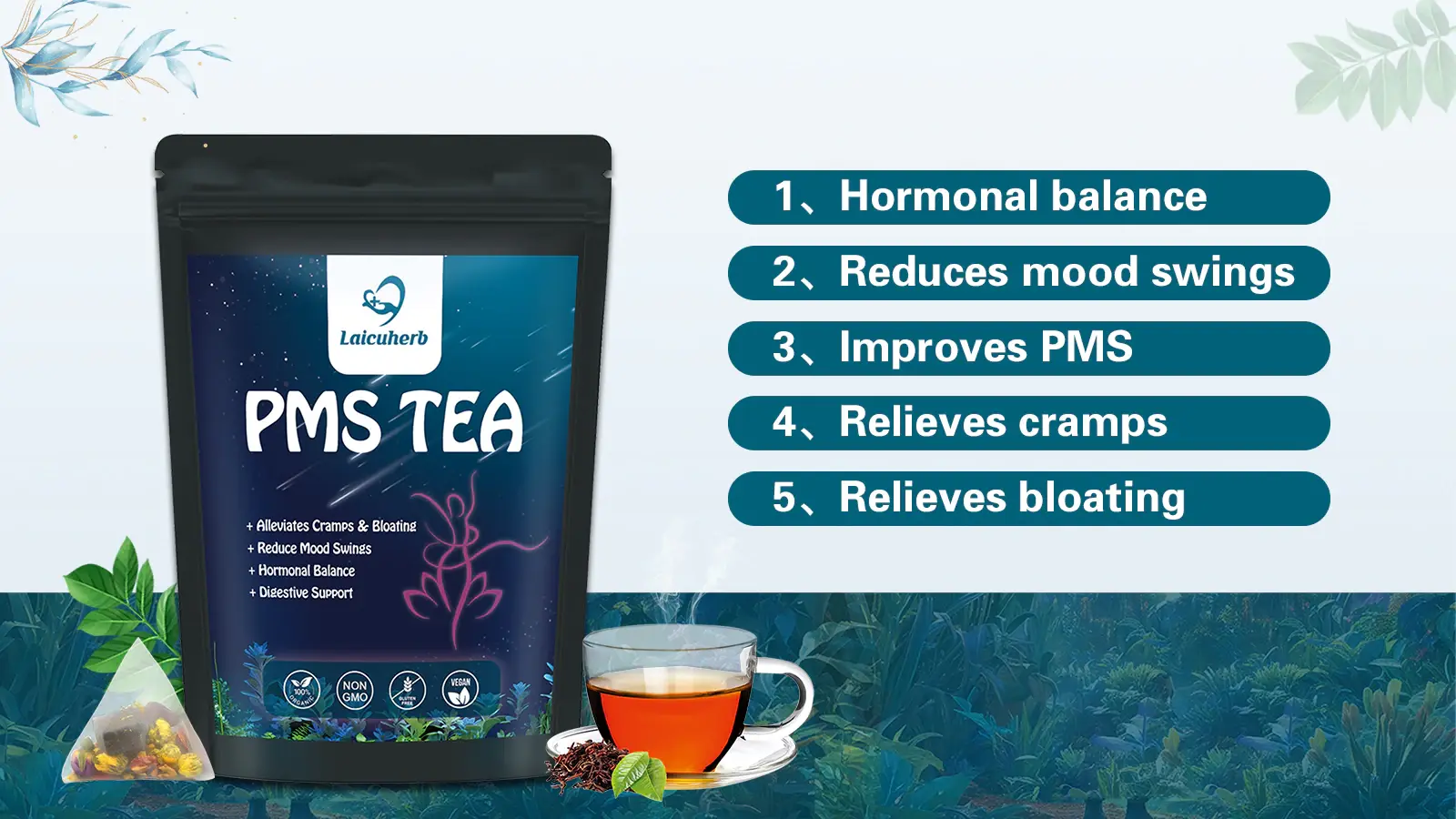
Important Precautions
While these teas are generally safe, it's important to remember that the scientific evidence is often based on concentrated supplements, not the teas themselves. Always consult a healthcare professional for severe pain. Additionally, if you are or think you might be pregnant, exercise caution. Certain teas are known for their specific effects, and it's best to be informed.
Tips: Teas made from the Camellia sinensis plant—like green tea, black tea, and oolong tea—contain caffeine. While the amount is typically less than in coffee, it's still important to be mindful of your daily intake, especially if you are sensitive to it.
A Final Word
Ultimately, finding comfort during your period is a personal journey. By understanding your body's specific symptoms—whether it's throbbing pain, uncomfortable bloating, or mental stress—you can make informed choices about which tea might offer the most relief. Think of these teas not as a quick fix, but as a long-term, supportive part of your self-care routine. While they can be a powerful tool for wellness, always remember to listen to your body and consult a healthcare professional for a comprehensive treatment plan, especially for severe or persistent pain. Your comfort is worth the effort.
References
- Ginger for Menstrual Pain: A systematic review and meta-analysis on the efficacy of ginger. https://pubmed.ncbi.nlm.nih.gov/38770631/
- Chamomile's Effects on Anxiety: A review of clinical trials on chamomile's anxiolytic properties. https://www.ncbi.nlm.nih.gov/pmc/articles/PMC11109927/
- Peppermint for Digestive Relief: A discussion of peppermint's role in easing muscle spasms and digestive issues. https://www.verywellhealth.com/peppermint-tea-8420406/
- Green Tea's Anti-inflammatory Benefits: A study on the effect of green tea on dysmenorrhea pain. https://www.researchgate.net/publication/355070834
- Red Raspberry Leaf Tea: An overview of its traditional uses and lack of robust scientific evidence for menstrual relief. https://www.news-medical.net/health/Raspberry-Leaf-Tea-In-Pregnancy-Safety-Benefits-and-Research-Insights.aspx
FAQ
Q: What helps period cramps asap?
A: To quickly relieve menstrual pain, you can use over-the-counter painkillers such as ibuprofen, and apply heat (using a heating pad or taking a hot bath). Long-term treatment can involve daily consumption of health teas, such as PMS tea, etc. These teas can warm the uterus and regulate overall health, thereby alleviating pain in the uterus. Note: Please keep drinking to achieve the effect of regulation.
Q: What not to drink during period cramps?
Do not eat cold food as it will aggravate the pain. It is recommended that you heat the food or drink before consuming. At the same time, it is advisable to minimize caffeine intake. Although there is no scientific evidence yet, we do not recommend that you consume too much caffeine-containing foods.
About the Author

The core content team at Laicuherb is a collective of experts, including health professionals, consultants in Traditional Chinese Medicine, and experienced content strategists. Some articles are authored by our brand's founders or R&D scientists. Our team has deep expertise in herbal health, integrating the wisdom of traditional medicine, modern nutrition, and women's health research to transform ancient wellness principles into practical, accessible content for everyday life.







